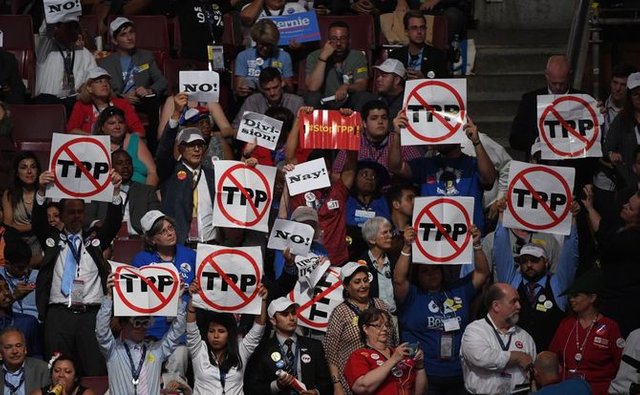TPP Poised to Make Comeback

The Trans-Pacific Partnership (TPP) trade deal may still move forward despite US withdrawal earlier this year. Eleven nations including Canada, Australia, Japan and New Zealand are working to potentially revive the deal. Trump nixed US involvement this January in favor of negotiating bilateral trade deals, leading to a consensus that the TPP was dead. Japan stated at the time that the TPP was “meaningless” without the US but their view appears to have changed.
The TPP was originally part of former President Barack Obama’s “pivot to Asia.” It seeks to lower any barriers to trade among member nations including barriers from tariffs, state regulations and numerous other factors. An explanation still up in the Office of the US Trade Representative describes the TPP’s goal in glowing terms, stating that it seeks to further the US goal of “open trade” and “regional integration.”
As the Canadian Press reports:
“Since the U.S withdrawal, Japan and New Zealand have been spearheading efforts to revive the deal. Both countries have ratified the agreement and moved forward on legislation related to the deal. But Canadian officials stress that even the countries most enthusiastic about the previous agreement understand that it must be significantly altered before it can move forward.”
The TPP has been described by critics such as Sujata Dey of the Council of Canadians as “a huge corporate power grab.” Dey and her organization are especially concerned about the investor-state dispute settlement measures contained in the TPP, which authorize corporations to sue national governments whose actions (on the basis of safety, environmental protection or so forth) cut into their expected profits. Independent analyses also acknowledge it could lead to job loss in Canada and Japan. TPP supporters, such as Japan’s ambassador to Canada have called it a big step forward in free trade that would be an antidote to the US trend towards “protectionism” and “send a strong message” to Trump. Canadian supporters also believe the TPP may be a boon to the forestry, manufacturing and livestock industries. A study from Tufts University found that the TPP was likely to be a net negative economically for both Japan and the US, if ratified. The paper further argued that the TPP would worsen global inequality and unemployment.
At the time it was being debated in the United States the TPP deal engendered wide opposition, including a rock tour launched to fight against it. Opposition to the TPP helped propel Trump’s presidential campaign and was a centerpiece of the enormous success of the Bernie Sanders campaign. An opinion piece in November, 2016 in The Guardian gave credit to the “unprecedented, international uprising of people from across the political spectrum” for defeating the deal.
The TPP’s chances of a comeback remain to be seen, but it’s clear that Canada, Japan and various other powerful nations (and multinational corporations) are still interested in pursuing it.
China, meanwhile, is spearheading a massive, multinational trade deal called the Regional Comprehensive Economic Partnership (RCEP), which would create an enormous global free trade bloc. The deal is expected to include 16 countries mainly from the Association of Southeast Asian Nations (ASEAN) such as Indonesia, the Philippines and Thailand, but it also includes non-ASEAN member states such as India. The RCEP trade deal is expected to be in place by year’s end.
Originally published on: http://anonymous-news.com/tpp-poised-to-make-a-comeback/